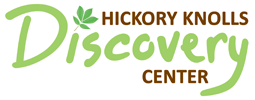School Field Trips
Calling all teachers, school administrators, childcare providers and homeschool parents…
Schedule your field trip or classroom experience today! Meet the wildlife ambassadors, explore our woodlands and wetlands, examine plants and habitats and more – the possibilities are endless!
Educational programs are aligned with NGSS science standards. All programs are interactive and enrich the learning of classroom topics. Our teaching staff consists of skilled instructors.
Fees are determined by length of program and St. Charles residency. Resident (RES) rates apply to schools located within the St. Charles Community Unit School District 303 boundaries. All other schools are considered non-resident (NR).
Fees are per student and there is a minimum fee of $75. All programs must be scheduled in advance.
Please contact Morgan Brown, School and Camps Coordinator, at mbrown@stcparks.org if you have any questions, need to discuss other options for your field trip, to check availability and book your field trip.
Hickory Knolls staff also offer programs for middle school, high school and homeschool students.
Amazing Animals
Many animals call Hickory Knolls home! Students will come inside to learn about some of the amazing animal ambassadors that call the Discovery Center home, and search for stuffed animals during a walk on our paths.
Hickory Knolls Discovery Center and Natural Areas
45 minute program
RES $5/NR $7
Home Sweet Home
Plants and animals survive in a specific habitat because it meets their needs. Native plants and animals use the non-living and living parts of their habitat to survive. Students will participate in hands-on activities to discover how native animals come to call Illinois their home.
Hickory Knolls Discovery Center and Natural Areas
1 hour 30 minute program
RES $6/NR $8
Next Generation Science Standard: K-LS1-1. Use observations to describe patterns of what plants and animals (including humans) need to survive.
Bug Biographies
Insects are fascinating and found everywhere! Search for a variety of these critters while uncovering unique characteristics. Students will explore the woods and fields on a quest for bugs!
Hickory Knolls Discovery Center and Natural Areas
1 hour 30 minute program
RES $6/NR $8
Next Generation Science Standard: 1-LS3-1. Make observations to construct an evidence-based account that young plants and animals are like, but not exactly like, their parents.
Seeds and Cycles
Discover different plants while learning about their habitats in this interactive program. Explore plant parts, what plants need to grow, how flowers are pollinated, and how seeds are dispersed.
Hickory Knolls Discovery Center and Natural Areas
2-hour program
RES $7/NR $9
Next Generation Science Standard: 2-LS2-2. Develop a simple model that mimics the function of an animal in dispersing seeds or pollinating plants.
Animal Adaptations-Bird Beaks
Bird beaks provide clues for what a bird can and cannot eat. Students will learn about a variety of native birds and participate in an activity that challenges them to decide what each species can successfully eat in order to survive.
Hickory Knolls Discover Center and Natural Areas
2-hour program
RES $7/NR $9
Next Generation Science Standard: 3-LS4-2. Use evidence to construct an explanation for how the variations in characteristics among individuals of the same species may provide advantages in surviving, finding mates, and reproducing.
Fossils to Fuels
Illinois has changed over time. The focus of this program is to explore the Earth processes as they shape the land, form rocks, create fossils and fossil fuels. Topics include plate tectonics, waves, rock cycle, patterns in rocks, fossils, weathering and topographic maps.
Hickory Knolls Discover Center and Natural Areas
2-hour program
RES $7/NR $9
Next Generation Science Standard: 4-ESS1-1. Identify evidence from patterns in rock formations and fossils in rock layers to support an explanation for changes in a landscape over time.
Energy in Ecosystems
Explore the water at Ferson Creek Park. Look for macroinvertebrates and learn about energy transfer and the vital role of plants and animals to the health of these communities.
Ferson Creek Park
2-2.5 hour program
RES $7/NR $9
Next Generation Science Standard: 5-PS3-1. Use models to describe that energy in animals’ food (used for body repair, growth, motion, and to maintain body warmth) was once energy from the sun.

